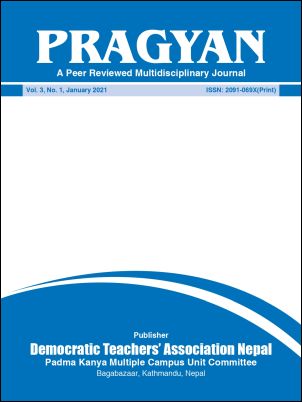Feminists Reading of Foucault's Theory of Sexuality and Power
DOI:
https://doi.org/10.3126/pprmj.v3i1.61410Keywords:
Sexuality, Power, Patriarchy, FeminismAbstract
Sexuality is a normal and healthy part of human lives, normally and naturally, human is a sexual being and sexuality is viewed as a person's capacity for sexual interests and feelings. Similarly, sexuality is shaped and regulated by various determining factors such as social, political, cultural, legal, biological, psychological, spiritual, historical and so on which varies across societies and cultures. Sexuality is a broader idea which has various theoretical explanations and unbending social arrangements and comprises much more than sexual intercourse. On top of it, there is no single narrative which is globally accepted, various debates and discourses are more vigorous in the context of power, sexuality and feminism. Many theoreticians, researchers and practitioners have looked upon instances of homosexual, intersexual or non-hetero births as problems for the binary model that they have identified of power and sexuality. We consider power and sexuality to be distinct hitherto closely attached categories and yet it is a dynamics of power and mechanism of social control. Foucault has emphasized the role of discourses of ideas in constructing and regulating human sexuality and prevailing patriarchal order. Basically, this paper explores some conceptual and theoretical dialogues concerning sexuality, power and feminist narrative. In this context, the aim of this paper is to discuss the relationship between feminist standpoints of gender and sexuality and Foucault's ideas of sexuality and power.




